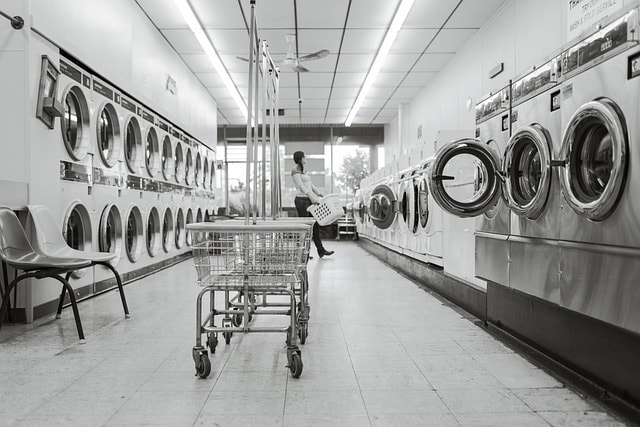

A business payday loan is often used to describe a form of alternative business financing that provides quick access to capital for small business owners. While a consumer payday loan provides short-term funding based on the borrower’s salary and personal income, a business payday loan works differently.
A business payday loan is a nontraditional form of financing that functions similarly

Collateral refers to assets that a business owner pledges to secure a loan. Essentially, collateral acts as a safety net for the lender, ensuring they can recover their investment if the borrower defaults.
In the case of a secured business loan, the lender has the legal right to seize the pledged assets to recover the outstanding loan balance. Collateral

Buying an existing laundromat can be less costly and time-consuming than starting a new one from scratch. The purchase price can range from $18,000 to $3 million, depending on the location, size, and profitability of the business. While purchasing a laundromat requires a significant investment, it often saves you the time and expense associated with building a new facility.
Acquiring

Inventory financing is a specialized type of small business loan that helps business owners purchase essential inventory for their operations. It’s a form of asset-based lending (ABL) in which the inventory acts as collateral, reducing the risk for lenders. Inventory financing can also refer to using current inventory as collateral for business funding for other operations, such as working capital

Commercial loan interest rates fluctuate due to various factors, including economic conditions and shifts in the federal funds rate. Over the past several months, the commercial mortgage market has experienced some volatility as the Federal Reserve has adjusted the interest rate to control inflation.
As of January 10, 2025, the average interest rate for a 5-year commercial mortgage loan is

Small business owners can choose from various working capital loan products to fund their day-to-day business expenses. A working capital loan is often used to cover cash flow shortages during non-peak business times and when the business has some unexpected expenses. Every restaurant owner has experienced these off-season challenges at one time or another.

Most restaurants and eateries don’t have cash available to replace or expand restaurant equipment. Even if you have the cash reserves to purchase the equipment outright, you might want to hold onto that capital for consistent cash flow, other investments, or emergencies.
Many small business owners turn to equipment financing when they need to replace or upgrade business equipment. In

Small business loans are essential for raising the capital to launch or grow your restaurant business. Every successful business owner will likely consider applying for a restaurant loan at one time or another. Before you take one on, you need to understand the pros and cons, how they work, and what to expect when applying. Read on for more details.

Equipment is one of the significant expenses that a contractor may face. Operating a construction/contracting business requires regular equipment upgrades and the addition of more equipment as the business demand requires it. And without the right equipment, your business can falter. If you’re looking at financing for this part of your small business expenses, it’s essential to understand the key

A working capital loan is a good financing tool to use as a strategy to bridge the financial gaps your contracting business may experience. These loans are structured as a short-term financing option. This is an excellent choice for small businesses to help with cash flow issues. To understand how these business loans work and what you need to know
Fraud Disclosure:
Please be aware that individuals have been fraudulently misrepresenting to business owners (and others) that United Capital Source, Inc. (“UCS”) can assist small businesses in receiving government grants and other forgivable business loans, when in fact those grants or loans do not exist or are not available. These individuals have ulterior motives and are engaging in the unauthorized use of the names, trademarks, domain names, and logos of UCS in an attempt to commit fraud upon unsuspecting small business owners.
UCS will never communicate with a prospective client on Facebook, Facebook Messenger, or any other type of social media. Further, any email communications will always come from an official UCS email address and not a Gmail, Yahoo, or other email domain. If you believe you have been contacted by someone posing as an employee of UCS, please email [email protected].